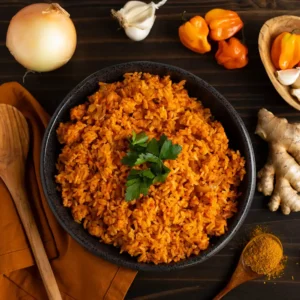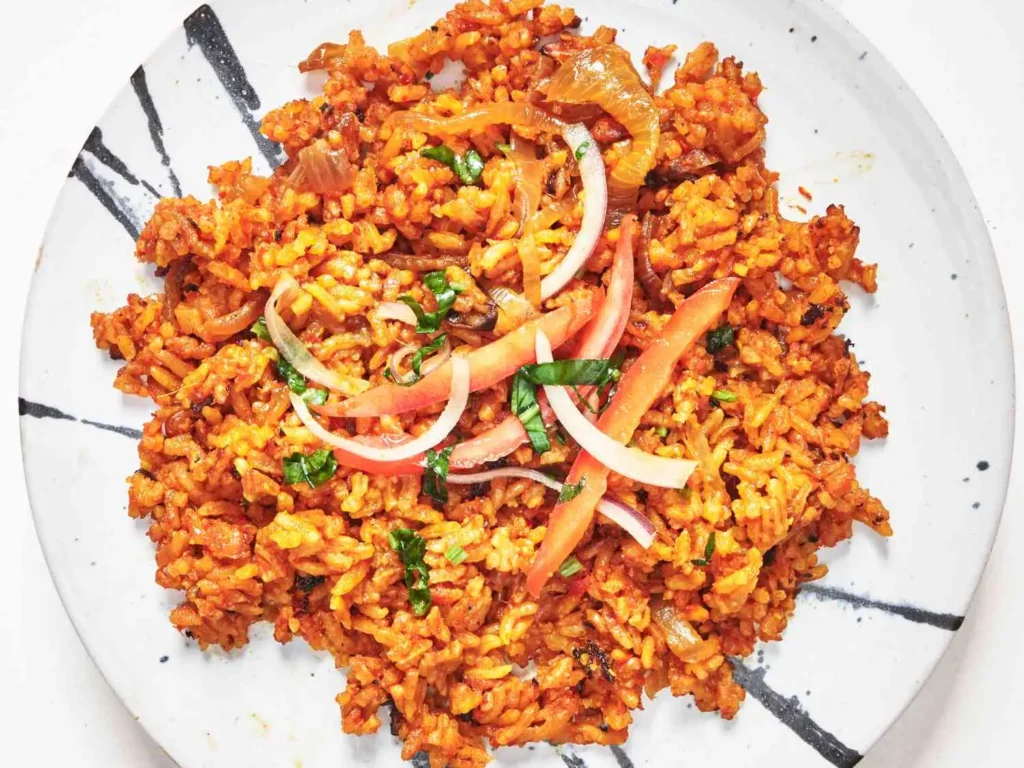The fierce competition between Nigeria and Ghana over who prepares the most delicious jollof rice has evolved far beyond regional banter—it is now a global phenomenon. In 2023, both countries showcased their culinary prowess at major international food events, bringing their variations of the iconic West African dish to global audiences and renewing an age-old rivalry rooted in cultural identity and national pride.
Jollof rice, a staple across West Africa, is more than just a meal. It represents heritage, celebration, and unity. However, in the context of Nigeria and Ghana, it has become a spirited contest where taste, preparation, and presentation determine bragging rights—not only at home but across continents.
Showcasing Jollof on the World Stage
This year, Nigerian and Ghanaian chefs dazzled crowds at international culinary expos such as the Jollof Festival USA, Taste of West Africa Expo, and African Street Food Carnival, held in cities like Washington D.C., London, Accra, Lagos, and New York. These events featured cook-offs, tasting sessions, masterclasses, and food showcases, with thousands of food lovers lining up to try both versions of the famed dish.
Nigerian jollof rice is typically prepared using long-grain parboiled rice cooked in a rich, spicy tomato-based sauce, often served with fried plantains, grilled chicken, or beef. Ghanaians, however, favor a more aromatic version with basmati rice, unique seasoning blends, and an emphasis on slow-cooked flavors.
As the competitions unfolded, judges—ranging from food critics to local dignitaries and international influencers—deliberated over the nuanced differences. Though most refused to declare a definitive winner, they acknowledged the deep cultural value and flavor mastery demonstrated by both sides.

More Than a Meal: A Cultural Symbol
While the debate over the best jollof rice remains unresolved, the rivalry has had far-reaching cultural and economic impacts. For both Nigeria and Ghana, jollof rice symbolizes more than food—it represents national identity, communal pride, and a shared West African legacy.
The “Jollof Wars” have spurred widespread interest in African cuisine globally. Restaurants across Europe, North America, and Asia now feature jollof rice on their menus, often crediting Nigerian or Ghanaian roots. This has created opportunities for African chefs, food entrepreneurs, and culinary influencers to gain international recognition and build businesses beyond the continent.
Social media has also played a vital role in fueling the rivalry. Hashtags like #JollofWars, #TeamNaija, and #TeamGhana trend regularly, with fans passionately defending their country’s version. Influencers and food vloggers frequently compare both dishes, contributing to the friendly tension and helping introduce new audiences to West African food culture.
Culinary Diplomacy and Unity in Diversity
Despite the rivalry, both nations have acknowledged that the friendly feud benefits the entire region. Through mutual exposure, West African cuisine as a whole has received increased attention and respect globally. Chefs from Nigeria and Ghana often collaborate on culinary tours and workshops, promoting African dishes beyond jollof rice, such as egusi soup, waakye, moi moi, and kelewele.
This culinary diplomacy fosters a deeper appreciation of regional diversity while reinforcing shared cultural roots. As food continues to bridge borders, the jollof debate becomes a unifying celebration of Africa’s richness rather than a divisive contest.
The Battle Continues—With Flavor and Flair
As 2023 draws to a close, the jollof rice rivalry remains as fiery as ever. Both Nigeria and Ghana have committed to raising their culinary standards, introducing innovative variations of jollof rice while staying true to their traditional methods.
While no global judge has declared an official winner, the real victors are the food lovers who get to enjoy both interpretations of this beloved dish. With more global festivals, digital content, and chef collaborations on the horizon, the jollof wars are far from over—and that’s something the entire world can savor.







